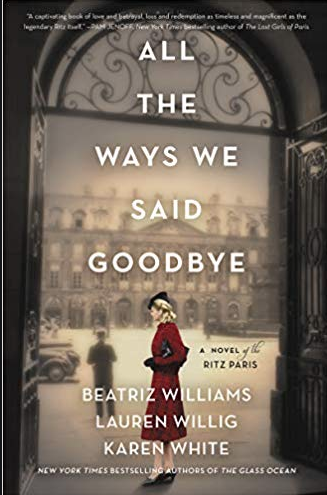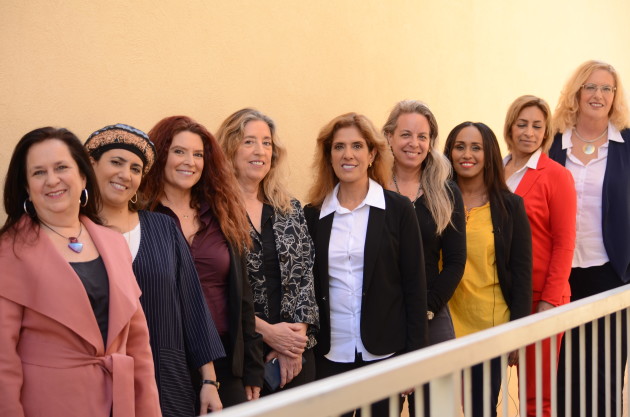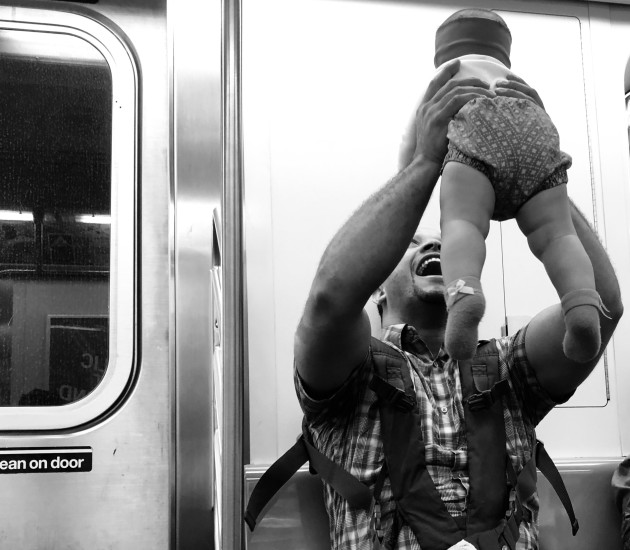The Lilith Blog
February 24, 2020 by admin
You Are Your Name
You are your name. In India, where I’m living for seven months as a Fulbright scholar researching the relevance of archaeological relics today, I’m constantly reminded of this.
“My daughter’s name is Zianna, it means bold and strong,” an acquaintance tells me.
“My name is Arushi, it means first ray of the sun,” says another new friend.
“My name is Pormishra, a god. It means, a god,” says a waiter.
“I am Suraj, the sun,” says another.
When I respond that my name is Elizabeth, Indians often say, “Oh, the queen. You are a queen.” Glad to dissuade them of any connection between my name and India’s former colonial rule, I tell people, “Actually, Elizabeth is a Hebrew name, it means house of God: beit means house; el means God.”
- No Comments
February 19, 2020 by Steph Black
Becoming an Abortion Doula
Earlier this year, Lilith asked me what my pro-choice New Year’s resolution was for 2020.
Without hesitating, I knew what my answer would be: I would become an abortion doula, who guides folks through the procedure. It is a very straightforward and simple goal on the surface, especially since I had already sent in my application to become a trained doula with the DC Doulas for Choice Collective (DCDC).
But there’s a lot of meaning to this choice. I’ve wanted to be an abortion doula for years, since I learned what it meant. Like a birth doula, an abortion doula is someone who is dedicated to guiding the patient through the abortion procedure. This can include answering their questions, remaining with them during the procedure even if they are under anesthesia, and remaining with them in the recovery room. It can mean acting as an advocate, getting water or snacks, praying with the patient, or just chatting about the Bachelor. Being a doula can take a lot of forms, but my primary goal is to support the patient with whatever they may need at any given moment.
Why go this extra mile in support of patients? Because I’m not only pro-choice, but I am pro-abortion and pro-access. That means going beyond supporting someone’s right to choose to terminate a pregnancy but fighting to remove the barriers that may prevent them from doing so.
I do not believe that abortion is a necessary evil, but a moral and social good. It’s what has led me to become not only a doula but a volunteer in other ways as well. I am a clinic escort with the Washington Area Clinic Defense Task Force (WACDTF) and I walk patients to and from their vehicles among anti-choice protestors who can be loud, in the way, and occasionally violent. I am also a volunteer with the DMV Practical Abortion Support Network, DAPSN, an organization that provides rides or walks to and from a patient’s hotel and the clinic and housing, all for free.
Washington, D.C. is one of the few areas in the country where someone can get an abortion throughout pregnancy, so there are hundreds of folks who travel from often very far states to access care here. Many of those folks rely on abortion funds to pay for their travels and expenses but can’t afford to bring someone with them. That’s where DAPSN and DCDC come in. Our job is to be the stand in for folks who cannot be with the patient.
This work is very different than fighting a political campaign. I am a proud volunteer with NARAL Pro-Choice America where I sit on their all-volunteer Action Council. I show up to protest whenever I can. I have even spoken out at the Supreme Court and been arrested for civil disobedience over abortion. But this year, I want to focus on the patients who make the choice to obtain abortion care. Often, lost in the noise of the political struggle to keep abortion safe and legal are the patients themselves who have to navigate complicated TRAP laws, legalese, and financial barriers to receiving care but who are human beings and moral agents like the rest of us, and who deserve a friendly face and sympathetic ear during their medical procedure.
It is easy to forget that the fight for abortion means fighting for real people, with jobs and families and social lives. They have names and faces, beyond a statistic. These are the people I am committing to supporting and getting to know.
Since my resolution was published, I successfully made it through the interviews and will begin my training in March. This year, I will not only fight for the right to abortion access, but hopefully sit with people and be their support as they exercise that right.
- 1 Comment
February 11, 2020 by Yona Zeldis McDonough
One Book, Three Protagonists…and Three Authors!

A book with three main protagonists and three different time periods is not so uncommon. But when that book is written by three different authors collaborating on a single whole, that’s pretty unusual. And that’s the case with the newly released All the Ways We Said Goodbye (William Morrow) written by the team of Beatriz Williams, Lauren Willig and Karen White. It feels so feminist to write a novel collaboratively, we had to know more. Willig chatted with Fiction Editor Yona Zeldis McDonough about how the story arcs of Aurelie, Daisy and Babs all converge at the Hotel Ritz in Paris, and about the benefits of three authors, one Unibrain.
Yona Zeldis McDonough: Where did the co-writing idea come from and how does it work?
Lauren Willig: Three authors walked into a bar…. But, really! It was the summer of 2012, and the three of us were indulging in a little liquid comfort at a writers’ conference. We’d all just come back from book tour and were moaning about how lonely it was to tour on our own and what fun it would be if we could just be together like this always, when one of us came up with a brilliant idea: all we had to do was write a book together! And then our publisher would pay for our girls’ trip and our bar bill. Simple as that.
- No Comments
February 6, 2020 by Elana Sztokman
Why We Started a New Women’s Political Party in Israel

Photo Credit: Efrat Shpruker
Every time I turn on my computer, I remember why I decided to form a women’s political party. Not alone, obviously, but with a diverse and talented group of women. Nevertheless, I am constantly reminded about what brought me here, every time the screen comes to life.
No matter how many ad-blockers I use, the ads are constant: Do I want a hot babe? Or, do I need Viagra? Or maybe I’m in the mood for a Russian bride?
- No Comments
February 6, 2020 by admin
Anne and Her Shadows
I have kept her photograph, which I purchased twenty-five years ago on my first trip to the Anne Frank House. I embarked on the narrow climb to the hiding place and later, the descent, and imagined all that had occurred in between. I was attuned to the voices of visitors speaking other languages as I looked out a window and considered the view and the sounds of Amsterdam’s streets and wondered if this is what Anne saw and heard. At that point, I withheld no emotion and unabashedly cried in front of everyone else in that room.
Only recently have I begun to comprehend the extent of her profound influence on my writing and working life which began with a spring play. As a fourteen-year-old, I auditioned for and won the role of Anne in my high school’s production of The Diary of Anne Frank. At that time, I had already read the Diary and attempted to watch a television dramatization, but couldn’t do so in one sitting as I darted in and out of the living room because of a seven-year-old’s fear. I didn’t know if what I was watching, a family living in hiding, was still happening. I wondered: “If the Frank family is in hiding, shouldn’t I be as well?”
Although the scenes appeared as mere shadows and whispers, I couldn’t make them disappear. With age came a clearer sense of past and present. Being on stage playing Anne protected me from those fears. I was engulfed in performing well without a single dropped line or missed cue. But as the fear abated, something else quietly manifested, an inner sense of responsibility.
- 2 Comments
February 4, 2020 by Elana Rebitzer
When I Tried to Get Girls to Wear Tefillin
“Close your eyes and brainstorm an ideal prayer environment.” Last summer, I sat with a group of soon-to-be summer camp division heads as an educator guided us through this exercise. Eyes shut, I imagined all of my campers, young teenagers, wearing tefillin (the black boxes with leather straps that ritually observant Jews use during morning prayers) and tallitot (ritual prayer shawls) as they participated in the service. Traditionally, both of those ritual items have been worn mostly by men.
But many contemporary Jews allow, encourage, or require women to wear them as well.
In the months leading up to last summer, I’d spent a long time thinking about this ideal. Back in 2017, my first summer at Camp Ramah in Northern California, I noticed that the packing list said that tefillin and tallit were mandatory for men and optional for women. Then, as now, strident about egalitarianism, I packed my own — if it was mandatory for men, to me, it must be mandatory for everyone. Even before I first stepped into the space of camp, I assumed that, since women were allowed to wear those ritual items, one of our shared goals would be for that to become a widespread practice.
- No Comments
February 4, 2020 by admin
The Foreign Policy Message We Should (But Won’t) Hear from the President
As we prepare to watch President Trump’s election-year State of the Union Address, we can predict one certainty from this unusually vocal president: Once again, he will not utter a single word supporting human rights around the world. For three years, this administration has dismantled America’s moral leadership on human rights—after decades of global bipartisan courage.
Together, President Trump and Secretary of State Pompeo have gone to extreme lengths to destroy nearly all protections for the most vulnerable communities. They have deliberately created policies harmful to the sexual health and rights of women, girls and LGBTQI+ communities, who often live at the margins of their societies.
- No Comments
January 30, 2020 by Eleanor J. Bader
The Compulsive Photographer of The Unnoticed: An Interview with Lori Azim

When Lori Azim (Instagram: @Cheeseburger_earmuffs) was growing up in Kansas, her father–a professional photographer who took portraits of people like jazz great Duke Ellington and President Harry Truman—made it clear that he did not want his daughter to make camera work her profession.
- No Comments
January 30, 2020 by Yona Zeldis McDonough
Love and the Law in “That’s Not a Thing.”
Meredith Altman has a serious choice to make—does she return to her first love, and confront the heartbreak she caused him? Or does she keep a safe distance in order to protect the new relationship she’s built? These are the questions that animate Jacqueline Friedland’s That’s Not a Thing (Spark Press) and the author talks to Fiction Editor Yona Zeldis McDonough about the ways in which Meredith’s journey mirrors—and departs from—her own.
YZM: The theme of guilt is threaded through the novel—do you feel it’s a particularly Jewish kind of guilt?
- No Comments
January 28, 2020 by S. L. Wisenberg
Celebrating Jewish Feminism … in Serbia
About eighty mostly-European, mostly-Jewish feminists gathered in Belgrade, Serbia, in September for the ninth Bet Debora conference. The History of the region makes this significant.
In 1989 the Berlin Wall fell, and the Soviet Union crumbled two years later. There was room for Jewish renewal and flowering in countries that had been behind the Iron Curtain. But not in the former Yugoslavia.
Instead, in the early 1990s when Rosh Hodesh groups were first gathering in a united Berlin, Yugoslavia was turning into a failed and former country. When travelers in Prague were following women-led Jewish tours, Yugoslavia was in civil war. When women throughout the former Soviet bloc were discovering they were Jewish, learning to lead seders, creating egalitarian services and studying for the rabbinate, Jewish women in bombed-out Sarajevo were, alongside men, providing food and medicine to their fellow citizens of all ethnicities.
- No Comments
 Please wait...
Please wait...